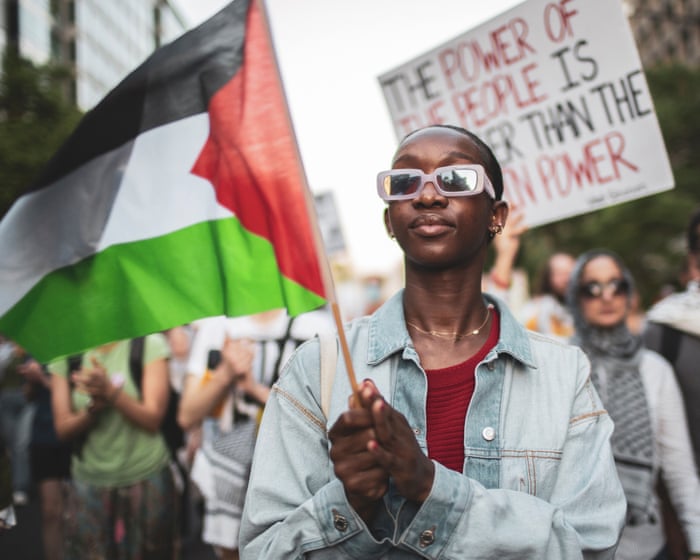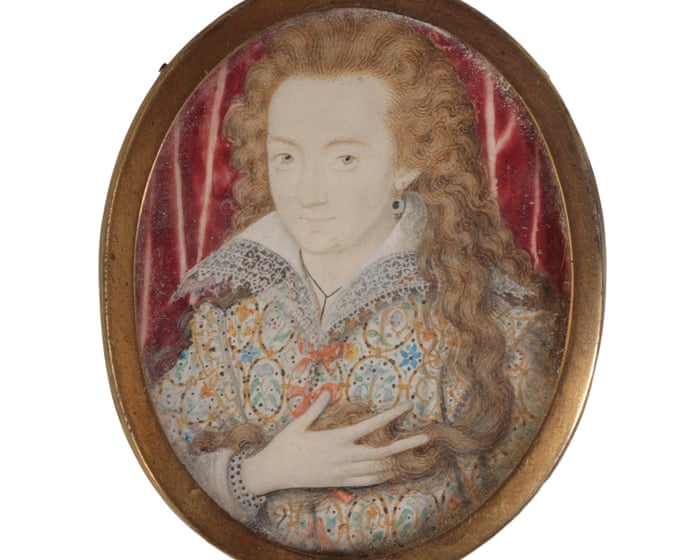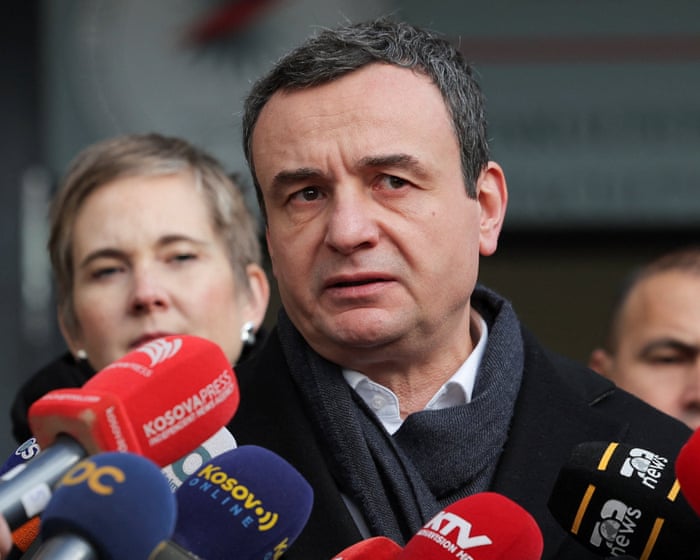**"Nossa liberdade estará incompleta sem a liberdade do povo palestino."** Quando Nelson Mandela proferiu essas palavras em 1997, elas ecoaram profundamente entre muitos na diáspora negra, que há muito sentem uma conexão íntima com a luta palestina. Nesta edição do **Long Wave**, enquanto mais jornalistas perdem a vida em Gaza e algumas nações ocidentais finalmente tomam medidas para reconhecer um Estado palestino, exploro a história da solidariedade negra com a Palestina e como ela persiste.
Mas primeiro, um breve pedido: Adoraríamos seu feedback sobre **The Long Wave**—o que você gosta, o que poderia melhorar e como podemos aprimorar. Se tiver alguns minutos, por favor, responda a esta rápida pesquisa.
### **Uma História Compartilhada de Opressão**
Em 1988, Yasser Arafat, líder da Organização para a Libertação da Palestina, declarou um Estado palestino. Dos 84 países que imediatamente o reconheceram, metade era da África ou do Caribe. Mas a solidariedade com a Palestina já vinha crescendo, pois muitas nações negras pós-coloniais enxergavam suas próprias lutas refletidas na causa palestina.
O líder dos Panteras Negras, Stokely Carmichael, chamou a Palestina de **"a ponta da África."** Em 1994, o presidente de Burkina Faso, Thomas Sankara, disse à ONU: **"Penso no bravo povo palestino, famílias dilaceradas, forçadas a vagar pelo mundo em busca de refúgio. Sua situação nos lembra do nosso dever moral de lutar pela justiça."** E, para Mandela, a Palestina não era apenas uma luta paralela—era essencial para a libertação global.
### **Um Laço Político Forjado pela História**
Na África, o apoio à Palestina não foi automático—ele surgiu de eventos reais. Nas décadas de 1950 e 60, Israel, recém-estabelecido em 1948, tentou se apresentar como outra jovem nação libertando-se do colonialismo. Construiu laços pelo Sul Global, incluindo a África, para contrapor a hostilidade dos vizinhos árabes. Mas as guerras de 1967 e 1973 mudaram tudo. Milhões de palestinos foram deslocados, suas terras ocupadas, e Israel tomou territórios do Egito, da Síria e da Jordânia.
Essa mudança, como observa a historiadora Dahlia El Zein, marcou **"o declínio da influência de Israel na África."** Israel deixou de ser visto como parte da luta anticolonial e passou a ser considerado um opressor. Em meados dos anos 70, a Palestina havia se tornado central ao movimento pós-colonial. A Organização da Unidade Africana (precursora da União Africana) declarou em 1975: **"Os regimes racistas na Palestina ocupada, no Zimbábue e na África do Sul compartilham as mesmas raízes imperialistas—unidos na opressão da dignidade humana."**
### **Lutando Contra o Imperialismo Juntos**
À medida que os movimentos negros evoluíam—do combate ao colonialismo à demanda por direitos civis e justiça racial—a solidariedade com a Palestina permaneceu forte. Se a Palestina era **"a ponta da África"** para os Panteras Negras, também ocupava um lugar central nas lutas políticas da diáspora negra. A conexão entre a Palestina e os movimentos globais antirracismo é profunda. Desde grupos trabalhistas da diáspora, como o Caribbean Labour Solidarity do Reino Unido, até movimentos internacionais como o Black Lives Matter (BLM), a luta contra a opressão palestina tem sido uma causa compartilhada. Muito antes dos protestos do BLM ganharem o mundo em 2020, os organizadores do movimento já haviam tornado o fim da ocupação da Palestina uma demanda central, além de apoiar a campanha de boicote, desinvestimento e sanções (BDS) contra Israel.
Em um comício pró-Palestina em Nova Jersey em 2021, o organizador do BLM, Zellie Thomas, destacou a profunda empatia que muitos negros americanos sentem pelos palestinos: **"Nós conhecemos a ocupação. Conhecemos a colonização, conhecemos a brutalidade policial."**
### Gaza e uma Nova Era de Solidariedade
O genocídio em curso em Gaza e a escalada da violência de colonos na Cisjordânia só reforçaram a solidariedade daqueles que há muito reconhecem a luta palestina como parte de um combate mais amplo contra o apartheid e a violência estatal. Isso transformou a causa palestina de uma questão política abstrata em uma crise humanitária urgente—agravada pelo apoio de potências ocidentais, especialmente os EUA, aos ataques de Israel.
A África do Sul, uma nação marcada pelo apartheid e pela cumplicidade ocidental nesse sistema, levou Israel ao Tribunal Internacional de Justiça, exigindo proteções para os palestinos contra o genocídio.
Nos EUA, o maior aliado de Israel, a luta palestina continua a ressoar. No ano passado, Ta-Nehisi Coates—um dos escritores mais destacados do país sobre racismo e reparações—publicou **The Message**, um livro que critica Israel e associa suas políticas à história racista dos EUA.
Ao visitar os territórios palestinos ocupados, Coates disse que a comparação mais próxima que poderia fazer era **"a época em que os EUA se diziam uma democracia enquanto privavam os negros do sul de seus direitos. Quando falo de Jim Crow, quando falo de segregação—é esse período que me vem à mente."**
Talvez seja por isso que as nações ocidentais demoraram a reconhecer a Palestina. A verdadeira solidariedade não surge de estratégia política, mas do reconhecimento de lutas compartilhadas—quando o sofrimento de outro povo ecoa sua própria história e experiência vivida.
**Para a versão completa do The Long Wave, assine aqui para recebê-lo em sua caixa de entrada toda quarta-feira.**
PERGUNTAS FREQUENTES
### **Perguntas Frequentes: De Harlem a Hebrom – O Legado Duradouro do Apoio Negro aos Palestinos**
#### **Perguntas para Iniciantes**
**1. Qual é a conexão entre negros americanos e a solidariedade palestina?**
Negros americanos historicamente apoiaram os palestinos devido a experiências compartilhadas de opressão, racismo e resistência contra injustiças sistêmicas.
**2. Por que essa solidariedade é frequentemente chamada de "De Harlem a Hebrom"?**
A frase simboliza o vínculo entre comunidades negras (como Harlem, em Nova York) e as lutas palestinas (como Hebrom, na Cisjordânia), destacando o apoio mútuo.
**3. Quando começou a solidariedade negra-palestina?**
Ela cresceu durante o Movimento pelos Direitos Civis (anos 1960) e se fortaleceu com figuras como Malcolm X e os Panteras Negras apoiando os direitos palestinos.
**4. Quais são alguns momentos-chave desse movimento de solidariedade?**
- As visitas de Malcolm X a campos de refugiados palestinos (1964)
- A aliança dos Panteras Negras com grupos de libertação palestina
- Movimentos modernos como o Black Lives Matter expressando apoio à Palestina
**5. Como os ativistas negros veem a luta palestina?**
Muitos veem paralelos entre a resistência palestina e o combate ao racismo antinegro, à brutalidade policial e ao colonialismo.
---
#### **Perguntas Avançadas**
**6. Como o tratamento de Israel aos palestinos se compara ao racismo sistêmico nos EUA?**
Ambos envolvem segregação, policiamento militarizado e direitos desiguais, levando muitos ativistas negros a traçar conexões.
**7. Qual foi o papel dos Panteras Negras no apoio aos palestinos?**
Eles se aliaram publicamente a grupos palestinos, enxergando ambos os movimentos como lutas contra a opressão de estados militarizados.
**8. Essa solidariedade sempre foi aceita nas comunidades negras?**
Não—alguns líderes, como MLK, evitaram alinhamento direto, enquanto outros, como Malcolm X, foram vocais. Hoje, as opiniões ainda variam.
**9. Como os críticos veem a solidariedade negra-palestina?**
Alguns argumentam que ela simplifica conflitos complexos, enquanto outros acreditam que fortalece movimentos globais de antiopressão.
**10. Quais são exemplos modernos de ativismo negro-palestino?**
- Declarações do BLM sobre Gaza
- Protestos conjuntos contra violência policial nos EUA e ações militares israelenses
- Intercâmbios culturais entre artistas negros e palestinos
---
#### **Perguntas Práticas e de Ação**
**11. Como alguém pode aprender mais sobre essa história?**
Leia livros como *Black Power and*



